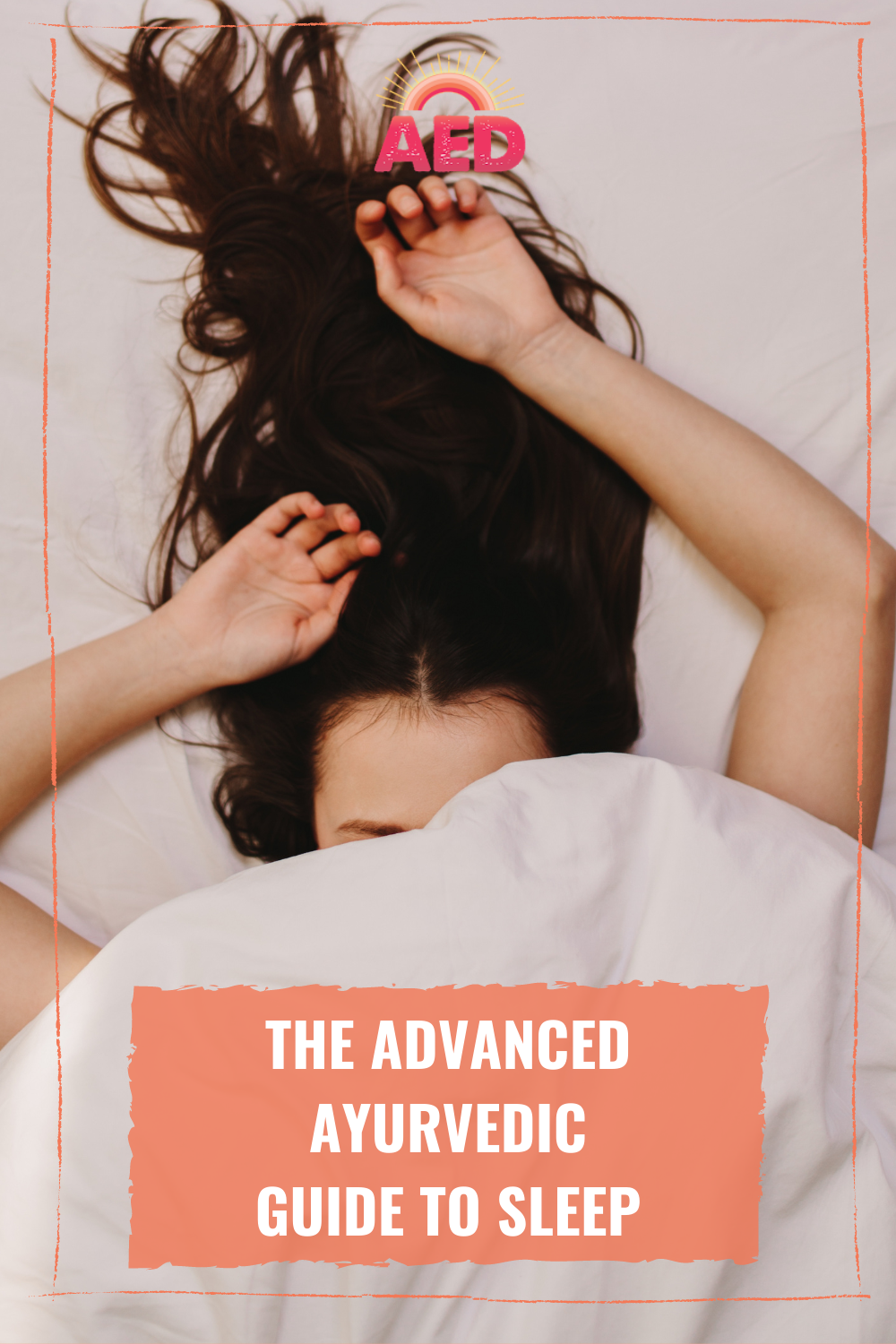
Are you tired of trying to figure out what you can do to sleep better at night?
Us, too. That’s why we wrote this post – to help you start sleeping better now!

Photo by Kalegin Michail
According to a study published in The Journal of the Missouri State Medical Association, “Insomnia is a public health concern and one of the most common complaints in medical practice.” It can cause difficulty with sleep quality and falling or staying asleep.
Not to mention how deeply your mood and energy get affected when you don’t sleep well at night. Let’s face it…
Sleep issues can be one of the most challenging things to experience.
It can interfere with everything you do, from the way you perform your daily tasks, to the way you show up at work, to your ability to maintain personal self-care practices that are meant to keep you healthy and strong.
“Proper sleep contributes to psychological health and well-being. However, most of us will encounter sleep disturbances throughout the course of our lives.” – Kripalu
The importance of sleep in Ayurveda is huge!
Sleep is one of the three pillars of vital health, and it’s absolutely crucial to your well being that you get the proper amount of sleep, as it can impact your vitality, mental clarity, and even the length of your life!
In this article, you’ll discover so much of what Ayurveda says about sleep.
What You’ll Learn:
- The Ayurvedic Lens on Sleep.
- The Energetics Behind Sleep Imbalance.
- How To Align with the Ayurvedic Sleep Schedule.
- Ayurvedic Sleep Tips and Home Remedies.
Most importantly…
You’ll learn how to finally get the restful sleep you so deeply deserve! Plus I’ve included links to some of my favorite remedies so you can get your hands on them right away!

Photo by Tracey Hocking
Ayurveda and Insomnia
The way you experience sleep imbalance will typically be based on your dominant dosha.
Pitta Dosha Sleep
Overheating and agitation are not uncommon in Pitta-predominant people. You tend to experience night sweats and restless or broken sleep. You might experience trouble falling asleep due to overstimulation from laptop, tablet, or cell phone screens. Not to mention your penchant for late-night creativity.

Photo by Taras Shypka
It can be hard for you to turn off that voice in your head that pushes you to get things done. The desire to go over what you didn’t accomplish today or everything you need to accomplish tomorrow is often the reason you can’t fall asleep.
Vata Dosha Sleep
Vata dominant people tend to experience restlessness before bed due to a sense of anxiety, overwhelm, or feeling scattered.
Once you do get to sleep, you tend to be a very light sleeper – so you’re woken up easily by things such as loud noises, light, and movement.

Photo by Alexandra Gorn
You may also experience mental chatter that keeps your mind racing and awake at night.
This might look like ruminating on certain fears and uncertainties, or processing ideas around creative projects and plans.
Kapha Dosha Sleep
If you’re Kapha dominant, consider yourself to be quite the lucky duck. Your problem isn’t getting to sleep, it’s getting too much of it!

Photo by Toa Heftiba
If you’re having trouble sleeping at night, or notice that after a long night of sleep, you still feel exhausted, this too is a sign of sleep imbalance.
Not sure what your dominant doshas are? You can find out here with my free dosha quiz!
The Gunas and Sleep: Little Known Forces That Run the Show!
There are three other classifications of energy you should know about. They’re called The Gunas.
The Gunas are intimately linked to the doshas and can be best described as the energies that impact your mind, body, and spirit.
These energies are called Tamas, Rajas, and Sattva.
Tamas (linked to the Kapha dosha) imparts inertia, dullness, lethargy, and darkness.
Rajas (linked to the Vata and Pitta doshas) creates momentum, desire, action, and kinetic energy.
Sattva (meaning balanced or pure) represents qualities that are peaceful, clear, balanced, and steady.
The Gunas are intrinsically connected to your sleep patterns.

Photo by NASA
To get super specific, Tamas and Rajas are the two gunas that you must balance in order to regulate your sleep patterns and finally sleep better at night.
We live in a predominantly rajasic world, meaning that Pitta and Vata are constantly being stimulated due to the constant movement, rushing, and heat generated by our culture.
And too many rajas can result in tamas. Tamasic energy (most closely related to Kapha), creates dullness, heaviness, and the kind of energy behind depression, lethargy, brain fog, sluggishness, and lack of clarity.

Photo by Alexander Popov
In Ayurveda, everything is either medicine or poison, and the energy of each Guna is only truly helpful when properly balanced.
Rajasic energy gives us the fuel and movement we need to wake up each morning and rise to meet the day. Rajasic energy keeps you moving, accomplishing, and motivated.
Tamas is important for helping us find steadiness and moments of stillness and meditation. It’s an important type of nighttime energy that helps you feel good and ready to fall asleep.
When you’re living a Sattvic lifestyle, and carry Sattvic intentions throughout your day, your mind, body, and spirit tend to be peaceful, clear, and balanced, resulting in healthy sleep patterns.
Sleep and The Ayurvedic Times of Day
Another crucial key to a good night’s sleep is knowing what time it is.
It’s important to observe the Ayurvedic sleep cycle. Ayurvedic science explains that depending on the time of day, certain doshas will be more activated in the body.

Another thing to pay attention to: The time when the sun rises and sets, otherwise known as the circadian rhythm. Ayurveda honors this cycle when it comes to sleep.
That’s why it’s so highly recommended that you wake up with the rising sun and go to bed just after sunset. Note… This time does change depending on where you live and what time of the year it is.
Fitting Sleep Into An Abnormal Daily Schedule
You may have a job or responsibilities that don’t allow you to align with an Ayurvedic sleep schedule.
In that case, a routine is key! If you work nights, then you want to make sure you have a fixed time for when you go to sleep and when you wake up.
As a general rule, try to schedule waking up around the Vata or Pitta times of day, and try to fall asleep during the Kapha times of day – so that you’re supported energetically by natural life cycles as much as possible.
Ayurvedic Tips and Remedies for Sleep

Photo by Ben Blennerhassett
Vata Sleep Tips and Remedies
Recommended Amount of Sleep: 8-9 Hours
Sleep Remedies:
- Try the Dreamy CBD Tonic by Zolt! Go for Dreamy before bed — its CBD + adaptogen mix will get to work soothing your mind and repairing your body, while its melatonin (3mg) will help whisk you off to dreamland quickly.

Photo by Zolt
- Give yourself a grounding foot massage with warming oils. Heat the oils, massage the feet for as long as you’d like, then put on a pair of your favorite socks. This will make a huge difference!
- Add grounding foods to your diet that pacify Vata. Aim for foods that are oily, wet, and sweet like avocado, ghee, whole cooked grains, sweet berries, squash, and roasted root veggies.
- Keep the room at a comfortable 70 degrees at night to keep you warm and grounded.
- Try using a heavy blanket, an eye pillow, and earplugs if needed to prevent you from waking in the middle of the night.
- Try restorative yoga or meditation before bed. Vata-pacifying yoga will not only help to soothe any joint pain that keeps you awake at night, but it will also ground your mind and spirit. I love to fall asleep to guided meditations and Yoga Nidra meditations. Check out Jennifer Piercy on Insight Timer for some of the best sleep meditations around!
Interesting Fact: The nature of Vata is degenerative, meaning that Vata works to break things down.
From the creative flow of energy that breaks down big ideas into bite-sized pieces to the down and outward movement that occurs with the elimination of waste and more; Vata is always on the move.
Because of this, Vata dominant people need the most sleep out of all the doshas.
Pitta Sleep Tips and Remedies
Recommended Amount of Sleep: 7-8 Hours
Sleep Remedies:
- Cool the room down to 60 degrees to prevent overheating at night and add cooling colors to your blankets and decor like greens, blues, and whites.
- Add cooling essential oils for Pitta like jasmine, mint, sandalwood, lavender, or chamomile to an oil diffuser and place it next to your bed.
- Consider keeping a journal next to your bed and setting aside an hour to reflect on your day and write down your “to-do” list for the next day. This will clear your mind and you’ll feel at peace knowing that everything is in order.
- Eat your last meal between 2 pm and 6 pm to make sure you aren’t overstimulating your digestive system before bed.
- Eat a pitta-pacifying diet of cool, sweet, and wet foods like whole grains, root vegetables, mint tea, and sweet fruits.
- Shut off all screens and dim the lights in your room around 8:30 to be ready for bed before 10 p.m.
Interesting Fact: You may have noticed that you get a second wind around 10 pm, especially if you are pitta predominant! That’s because this is the pitta time of night.
During this time, stimulation increases as the body goes into metabolism mode. If you tend to wake up between 10 pm and 2 am, this could also be the reason.
I highly recommend getting to bed (or at least being horizontal with the lights dimmed) before 9 pm.
Kapha Sleep Tips and Remedies
Recommended Amount of Sleep: 7 Hours
Sleep Remedies:
- Eat your last meal of the day between 2 pm and 6 pm to avoid excess weight gain and discomfort while sleeping as too much food before bed can weaken your digestive fire.
- If you’re having trouble sleeping, try an invigorating yoga practice or a brisk walk to wear you out before bed.
- Avoid napping during the day.
Interesting Fact: Kapha types need the least amount of sleep, but they love it so much!
While it may be highly tempting, Kapha types should avoid napping during the day. Napping can slow down your digestive fire, contribute to weight gain and lethargy, and decrease motivation in Kapha predominant people.
You will also find that you have an easier time waking up during the Vata time of day (before 6 am). So getting to bed by 9 or 10 pm is ideal.

Photo by David Clode
Start with Baby Steps…
This may seem like a lot, but taking it all one step at a time is how you’ll get lasting results, I promise. Start by keeping track of your current habits around sleep. This will help you determine what needs to be adjusted in your daily routine. Keep a sleep journal for 3 to 7 days to help with this.
You can also start with these 3 easy steps:
- Set a fixed time for sleeping and waking
- Eliminate light stimulation an hour before bed and turn off all screens by 8:30 or 9 pm
- Give yourself at least 3 hours between your last meal and sleep
From there you can slowly add in the powerful tips and remedies for your dosha to balance out your sleep patterns once and for all!
Did you learn something new from this guide?
I hope this guide helps you feel less stressed and more capable of getting the sleep you crave.
Sharing is caring, so pass this sleep guide along to a friend who may also need a good night’s rest!
Also, feel free to drop your insights and ah-ha moments in the comments section below. I love to hear from you!
Sweet Dreams!




Appreciate you sharing, great blog post. Thanks Again. Much obliged. Ula Zachariah Tran
Thank you for blogging this, it was quite helpful and told a ton